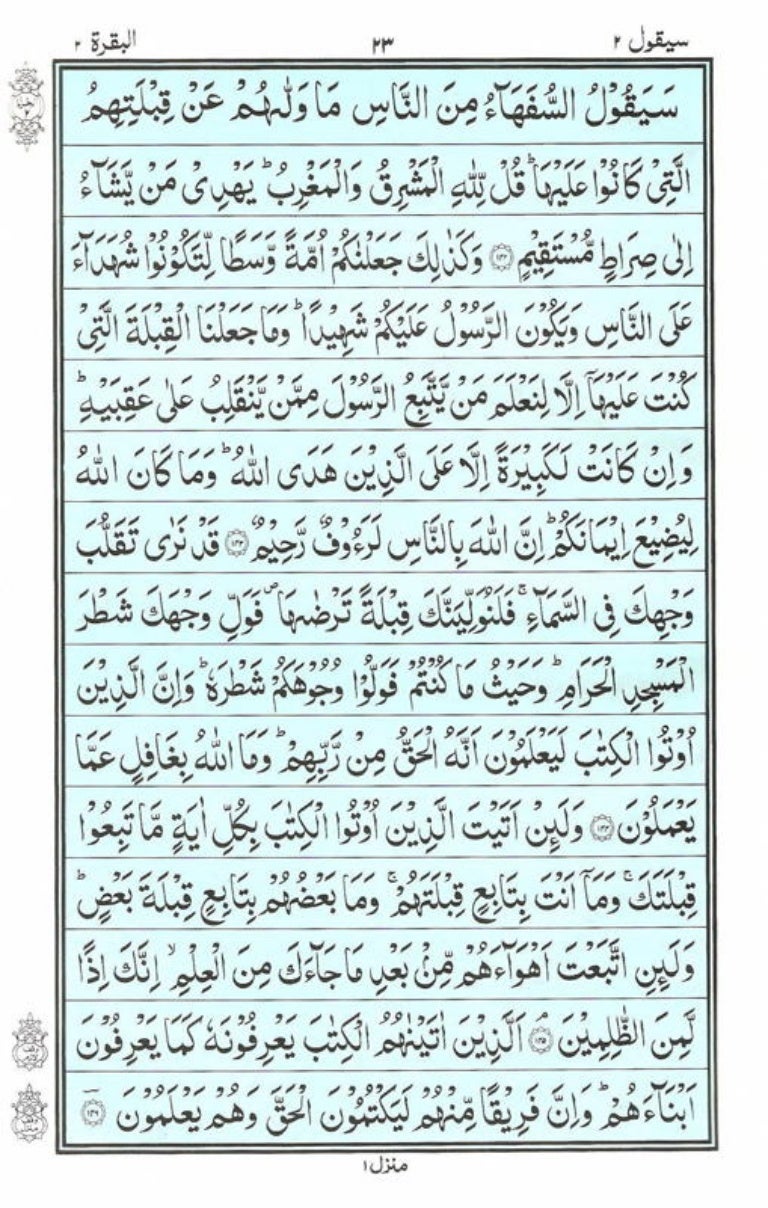People Also Ask
Sura Al-Fatiha (“The Opening”) is the first chapter of the Quran. Its verses are a prayer for God’s guidance and stress the Lordship and Mercy of God (Allah in Arabic). This chapter has a special role in daily prayers (Salat), being recited at the start of each unit of prayer, or rak’ah. English translation of Surah Al-Fatiha. Quran Surah numbers with Juz (Para) numbers. Al-Fatiha الفاتحہ in Para number 1 2. Al-Baqarah البقرۃ in Para Number 1, 2 and 3. Ale-Imran آل عمران in Para Number 3 and 4. An-Nisa ٓالنسا in Para Number 4, 5 and 6. Al-Maeda المائدۃ in Para Number 6 and 7. Al-Anaam الانعام in Para Number 7.
Quran Para 1


Quran 1st Para Pdf

Welcome to the Quranic Arabic Corpus, an annotated linguistic resource which shows the Arabic grammar, syntax and morphology for each word in the Holy Quran. Click on an Arabic word below to see details of the word's grammar, or to suggest a correction.
1st Para Of Quran Read Online
Chapter (1) sūrat l-fātiḥah (The Opening)
1st Para Of Quran In English
| Translation | Arabic word | Syntax and morphology |
| (1:1:1) bis'mi In (the) name | P – prefixed preposition bi N – genitive masculine noun جار ومجرور | |
| (1:1:2) l-lahi (of) Allah, | PN – genitive proper noun → Allah | |
| (1:1:3) l-raḥmāni the Most Gracious, | ADJ – genitive masculine singular adjective صفة مجرورة | |
| (1:1:4) l-raḥīmi the Most Merciful. | ADJ – genitive masculine singular adjective | |
| (1:2:1) al-ḥamdu All praises and thanks | N – nominative masculine noun اسم مرفوع | |
| (1:2:2) lillahi (be) to Allah, | P – prefixed preposition lām PN – genitive proper noun → Allah | |
| (1:2:3) rabbi the Lord | N – genitive masculine noun اسم مجرور | |
| (1:2:4) l-ʿālamīna of the universe | N – genitive masculine plural noun | |
| (1:3:1) al-raḥmāni The Most Gracious, | ADJ – genitive masculine singular adjective صفة مجرورة | |
| (1:3:2) l-raḥīmi the Most Merciful. | ADJ – genitive masculine singular adjective | |
| (1:4:1) māliki (The) Master | N – genitive masculine active participle اسم مجرور | |
| (1:4:2) yawmi (of the) Day | N – genitive masculine noun → Day of Resurrection | |
| (1:4:3) l-dīni (of the) Judgment. | N – genitive masculine noun اسم مجرور | |
| (1:5:1) iyyāka You Alone | PRON – 2nd person masculine singular personal pronoun → Allah | |
| (1:5:2) naʿbudu we worship, | V – 1st person plural imperfect verb فعل مضارع | |
| (1:5:3) wa-iyyāka and You Alone | CONJ – prefixed conjunction wa (and) PRON – 2nd person masculine singular personal pronoun → Allah | |
| (1:5:4) nastaʿīnu we ask for help. | V – 1st person plural (form X) imperfect verb فعل مضارع | |
| (1:6:1) ih'dinā Guide us | V – 2nd person masculine singular imperative verb PRON – 1st person plural object pronoun PRON – implicit subject pronoun → Allah | |
| (1:6:2) l-ṣirāṭa (to) the path, | N – accusative masculine noun اسم منصوب | |
| (1:6:3) l-mus'taqīma the straight. | ADJ – accusative masculine (form X) active participle |